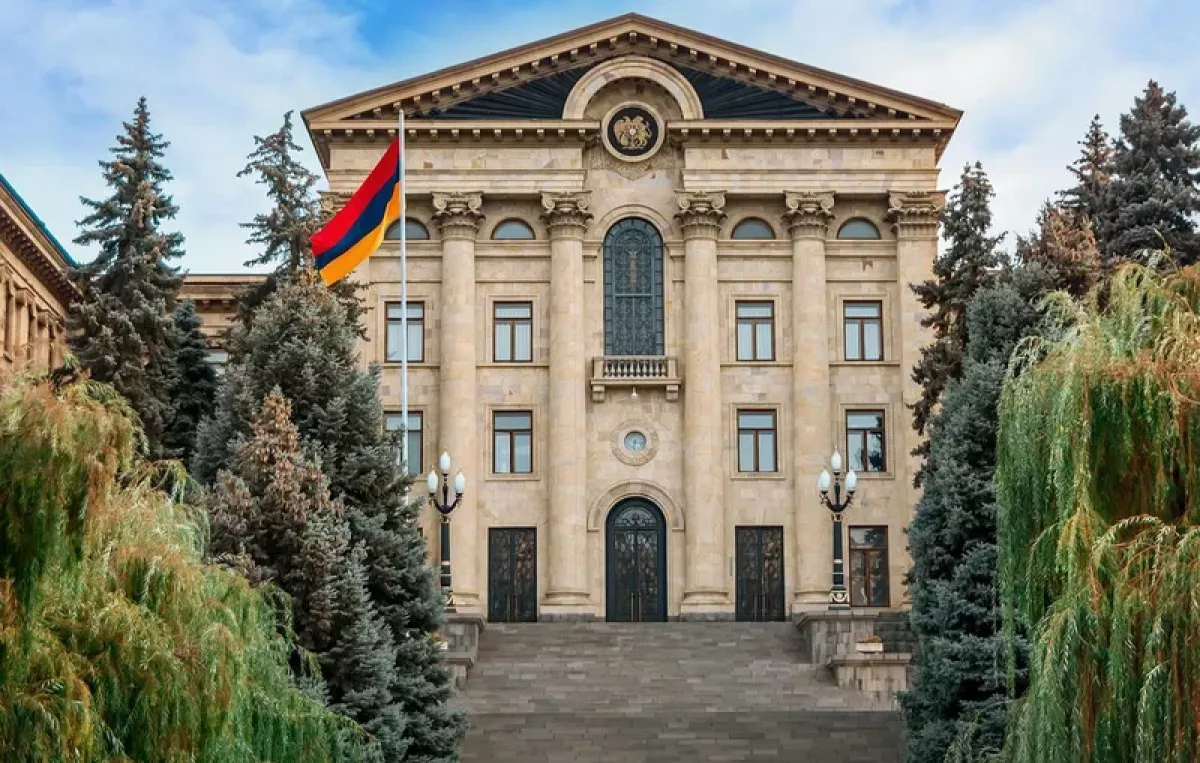Armenia between past and present Another defeat for the revanchists
Radical and revanchist forces in Armenia made yet another attempt to derail the process of normalising relations between Yerevan and its neighbours, once again trying to exploit the myth of the so-called “Armenian genocide.”
In particular, the parliamentary faction of the opposition “Armenia” bloc submitted a draft law to the National Assembly aimed at “criminalising the denial of the Armenian genocide.” However, this provocative move, like previous malicious initiatives, ended in complete failure: on October 2, the Armenian parliament rejected the proposal. Only 26 deputies voted in favour, 58 from the ruling Civil Contract party voted against, and two abstained. This vote was not merely a technical defeat for Armenia’s revanchists—it exposed deep divisions within Armenian politics.
The actions of the opposition “Armenia” bloc were entirely predictable. Following the final collapse of the “Karabakh project” and the effective loss of influence in society, this faction is seeking ways to assert its existence. The attempt to push through the parliament a draft law “criminalising the denial of the Armenian genocide” was precisely such a demonstrative action.

However, the recourse to the past and the attempt to revive a mythologised narrative—one that for decades has served as a pillar of Armenian propaganda and a tool for mobilising the diaspora—only underscores that the opposition is incapable of offering Armenian society a clear, positive agenda and reflects its ideological impotence.
Meanwhile, the parliamentary majority representing the Civil Contract party is acting in a logic dictated by geopolitical realities. For them, rejecting the exploitation of past myths is not only a rational step but also a necessary one.
The Second Karabakh War in the autumn of 2020 and the one-day counterterrorist operation in the Karabakh region in September 2023 buried all Armenian aspirations for Azerbaijani territories. Armenia found itself facing the new realities established by Azerbaijan and was confronted with a choice: either continue living in the grip of historical phobias imposed by the diaspora or build a future based on real interests. Official Baku offered the Armenian side a peaceful agenda, which also opened prospects for economic integration, and Armenia was compelled to accept it.
In this context, the process of normalising Turkish-Armenian relations has also gained momentum. Negotiations between Yerevan and Ankara are increasingly approaching practical completion, and steps such as the Armenian parliament’s rejection of the criminalisation of denying the mythical “Armenian genocide” serve as important signals in this direction. After all, long-term policy cannot be built on mythology that has no place in international relations.
Thus, Armenia is gradually moving away from the ideological constructs of the past. The process is not easy: the inertia of the diaspora is strong, and revanchist forces remain influential, but it is already clear that the ruling party is ready to assume responsibility for unpopular steps in the interest of the country’s future.

It is worth noting the particular irony of the current situation, given the position of foreign politicians and various public figures who for years sought to criminalise the denial of the so-called “Armenian genocide.” Now, however, Armenian parliamentarians have refused to follow that path. The paradox is striking: European politicians, in catering to the Armenian lobby and in pursuit of diaspora funding, have proven to be “more Armenian” than a large part of Armenia’s own legislators. This brings the role of money in politics sharply into focus. Contrary to the old adage that “money doesn’t smell,” in the case of Armenian projects in the West, we are confronted with a truly odorous reality. The funds used by the Armenian diaspora to buy the loyalty of Western politicians effectively pushed Armenia to the brink—a brink from which it is only now beginning to recover.
Thus, the current political situation in Armenia reflects a struggle between two strategies: the first—revanchism, grounded in myths and illusions; the second—pragmatism, aimed at lifting the country out of international isolation and opening new prospects for development. The rejection of the bill to criminalise the denial of the so-called “Armenian genocide” represents a small but significant victory for the latter approach. And although Armenia still faces numerous challenges ahead, this step away from the mythologisation of the past signals the gradual maturation of the country’s political class.








